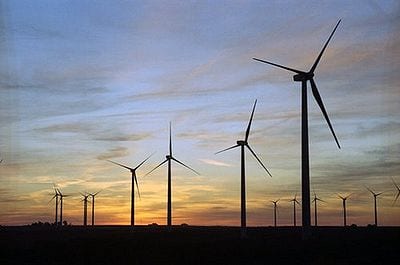 David Foxwell reflects on the prospects for offshore wind in Greek waters
David Foxwell reflects on the prospects for offshore wind in Greek waters
Offshore wind’s ability to create employment and regeneration is well proven. Parts of the UK, the world’s leading offshore wind market, have benefited greatly from it, as have depressed regions in other countries. Manufacturing and service jobs have been created and declining infrastructure reinvigorated.
Greece may not seem to have a lot in common with the UK. It does not have any offshore wind, but it does have a maritime infrastructure and considerable technical and academic expertise in things maritime.
Offshore wind has significant potential in Greece, says WindEurope, and all Greek regions stand to benefit, given that a supply chain would need to be put in place to support it.
Like Spain, which does not have any offshore wind either, Greece has ports, yards and fabrication facilities capable of building offshore wind structures and acting as logistics bases for offshore wind projects in its waters. Just as Spanish companies have benefited from the boom in demand for offshore wind, building structures for floating wind, so too could Greek companies.
Licences have been granted for potential projects in Greece, primarily small-scale bottom fixed projects, but the problem is that the country does not have a regulatory framework for offshore wind energy and permitting takes far too long.
What is needed is a ‘one-stop shop’ for permits and a single entity that would be responsible for overseeing projects, from the beginning until their completion. Such an entity would help mitigate delays and obstacles and shape a secure investment environment.
When the conditions are in place for offshore wind in Greece, it will be a market for floaters, given water depths in the Mediterranean. There are plenty of other challenges to overcome, such as grid connection, but none that have not been or are not being overcome in other markets.
Greece has an excellent wind resource with local average wind speeds often exceeding 8-10 m/s, especially in the Aegean, and included offshore wind in a draft National Energy Plan.
Given the economic climate in Greece and the problems the country has had to address, it is not unexpected that investors have called for strong policy commitment and a favourable support scheme for renewables.
Technology specific auctions for renewable energy would help floating wind a great deal, as would pilot projects, so it is encouraging to hear that Equinor has proposed a small-scale offshore windfarm in Greek waters.
Were a project like that to be investable, it would require the authorities to open areas for floating wind and put in place some form of support mechanism, so the ball is in the Greek Government’s court.
Taking steps now to create the conditions for offshore wind to develop could regenerate Greek communities, create employment opportunities and provide clean energy for Greece as it has in other countries.









